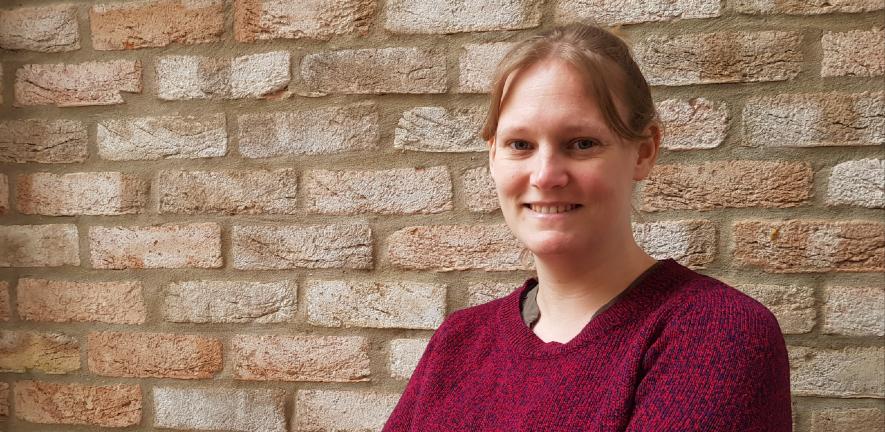
Submitted by Jane Durkin on Mon, 07/06/2021 - 11:39
Margreet Vogelzang is a postdoctoral researcher at the University of Cambridge Section of Theoretical and Applied Linguistics.
She researches different aspects of language processing using a combination of psycholinguistic, neuroscientific, statistical and cognitive modeling methods.
Her current research on syntactic parsing during reading, learning through code switching, and polysemy, looks at language processing in monolingual and multilingual adults, and the link between reading, comprehension and cognitive abilities.
She is also interested in the language and cognitive abilities of multilingual children from underprivileged contexts, and is collaborating with Prof. Ianthi Tsimpli on the British Academy-funded project Supporting the development of Indian primary school children's reading comprehension skills amongst other projects.
Margreet holds a PhD in linguistics from the University of Groningen (Netherlands). Prior to joining Cambridge University she worked as a postdoctoral researcher at the Institute of Dutch Studies at the University of Oldenburg.
Margreet will be presenting her research on Reading in a second language: Influences of context, world knowledge, and structural complexity at the Cambridge Language Sciences Symposium for Early-Career Researchers on 24 June 2021.
My research sets out to investigate language processing in general. I am interested in many different questions within the field of language processing. For example, how does the reading of a non-native speaker differ from the reading of a native speaker? But also how does one’s background – first language, socio-economic circumstances – affect how you learn language? How do cognitive skills influence reading development?
My research takes place all over the world. Not physically for now, as I am currently ‘stuck’ here in Cambridge, but I have a strong interest in many different languages and cultures. For example, in the study that I am presenting at the Language Sciences Symposium in June, Spanish speakers from Spain as well as all over South America took part. I think it’s wonderful that so many people from all over the world can be reached nowadays and are willing to take part in the research of someone they don’t know.
As for my day-to-day activities, I am mostly involved in data collection through psycholinguistic experiments, and in data analysis. At the moment the data collection is online, but normally I also work in the Psycholinguistics lab in Theoretical and Applied Linguistics. I have a strong interest in statistics and like to keep up-to-date with the latest developments regarding fancy data analyses and machine learning.
The most interesting things happen when you interact with other people. I recently ran an online study that I advertised on social media. One of my ads went semi-viral within a group for alumni from a UK university. At first people were commenting that they did the study.
But later, people started to evaluate and comment on the contents of the study. In the end, these comments proved more interesting than the actual study, with people’s comments giving us ideas and inspiration for at least two more studies!
For example, some – purposefully ungrammatical – constructions that we were investigating sounded American to the participants, whereas some others sounded more ‘childlike’. Some comments were very positive, others very negative. Some hinted at regional differences.
Practically speaking, I hope the work I am doing now will form the basis for a larger, potentially funded project in the future. However, the real goal of my research is to learn new things. I only investigate questions to which I sincerely want to know the answer myself. Of course, I also hope that the work will have a wider impact in the future, with potential applications in education.
I am very happy to be in Cambridge because of the large knowledge base that is here concerning theoretical and applied linguistics specifically and language sciences in general. There are also so many great people around in other related fields such as computer science, psychology, education and neuroscience. I feel that my move to Cambridge – in combination with the lockdown, which has actually stimulated international collaborations – has opened up the possibility for many international and interdisciplinary collaborations.
